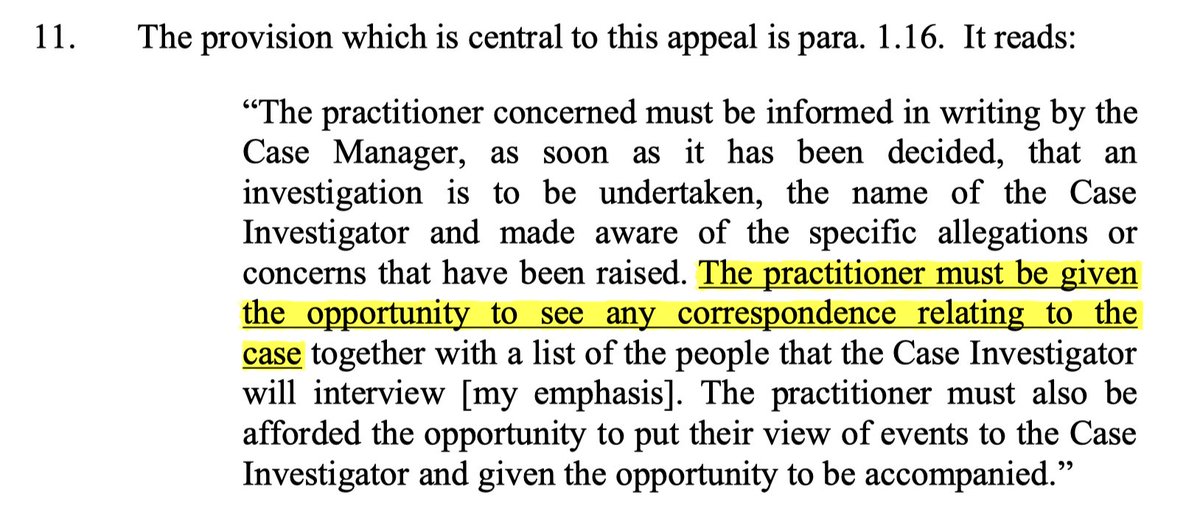
1/ Walsh v Network Rail: A rare EAT outing for the flexible working provisions. An agreement to attend a flexible working request appeal outside the decision period wasn't an agreement to extend the decision period.
bailii.org/uk/cases/UKEAT…
#ukemplaw
bailii.org/uk/cases/UKEAT…
#ukemplaw
2/ W submitted a flexible working request under the ERA Part 8A on 11.2.19. It was rejected on 7.3.19 & his employer gave him the right to appeal. Whilst the 3-month statutory decision period was due to end on 10.5.19, the parties agreed to hold the appeal on 1.7.19.
4/ Notwithstanding that schedule, a week before the appeal hearing W presented an ET claim on the basis that the flexible working request hadn't been dealt with reasonably, had been determined on incorrect facts & hadn't concluded within the statutory decision period.
5/ The ET concluded that the claim had been presented prematurely given that the agreement to hold the appeal hearing on 1.7.19 involved an agreement between the parties to extend the decision period, such that the claim was wrongly brought before the decision period expired.
6/ In giving judgment allowing the appeal, HHJ Tayler went carefully through the statutory provisions under ERA Part 8A. He suggested the reader would do well to have them to hand, so here they are for thread readers: 







7/ The EAT notes that whilst the statutory procedure doesn't require a hearing or an opportunity to appeal, where the employer provides for an appeal it must be finished within the decision period - a period of 3 months or any longer period agreed between employer & employee. 

8/ The agreement to extend the 3-months can be either up front or retrospective.
s.80H(3) ERA precludes the making of a complaint prior to expiry of the decision period (which can end either on the decision having been made (including on any appeals) or expiry of the period.
s.80H(3) ERA precludes the making of a complaint prior to expiry of the decision period (which can end either on the decision having been made (including on any appeals) or expiry of the period.

9/ It was the ET's position that agreement (without reservation) between the parties for the appeal to be heard on 1.7.19 must, by implication, have included at least an agreement to extend the decision period to that point, & hence the claim was brought prematurely. 

10/ In appealing, W asserted it was wrong to imply agreement to extend the decision period without more, & in any event it was contrary to the evidence that there's been any such implied agreement here.
11/ The EAT was unconcerned about whether any agreement to extend the decision period was express or implied, noting the ERA's silence on this. However, it held that agreement to extend the decision period & agreement to attend an appeal after it expired were 2 separate things. 

12/ Noting a host of sensible reasons an employee might agree to attend an appeal notwithstanding it falls outside of the decision period, HHJ Tayler was clear that agreement to extend the decision period must include the length of extension agreed. 

13/ On a policy-based level, HHJ Tayler noted the consistency between seeking compensation for a flexible working request not being dealt with as swiftly as the ERA anticipates, whilst also resolving the requested change at a belated appeal. 

14/ Thus in W's case there was no statutory agreed extension of the decision & the ET claim was not brought prematurely. The matter was thus remitted back to the ET for substantive consideration.
@42BR_Employment's Eleanor Wheeler appeared for Network Rail.
@42BR_Employment's Eleanor Wheeler appeared for Network Rail.
• • •
Missing some Tweet in this thread? You can try to
force a refresh









